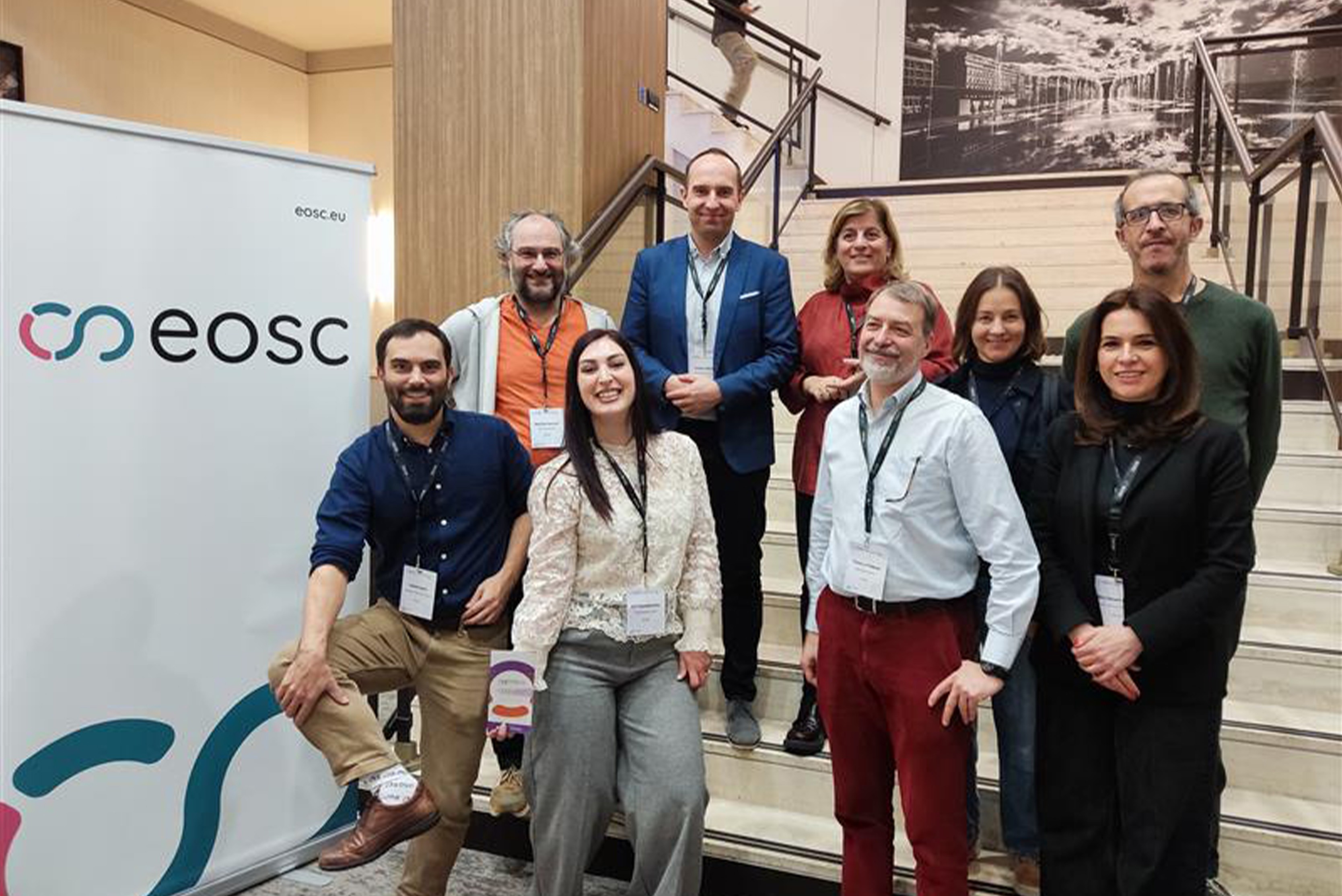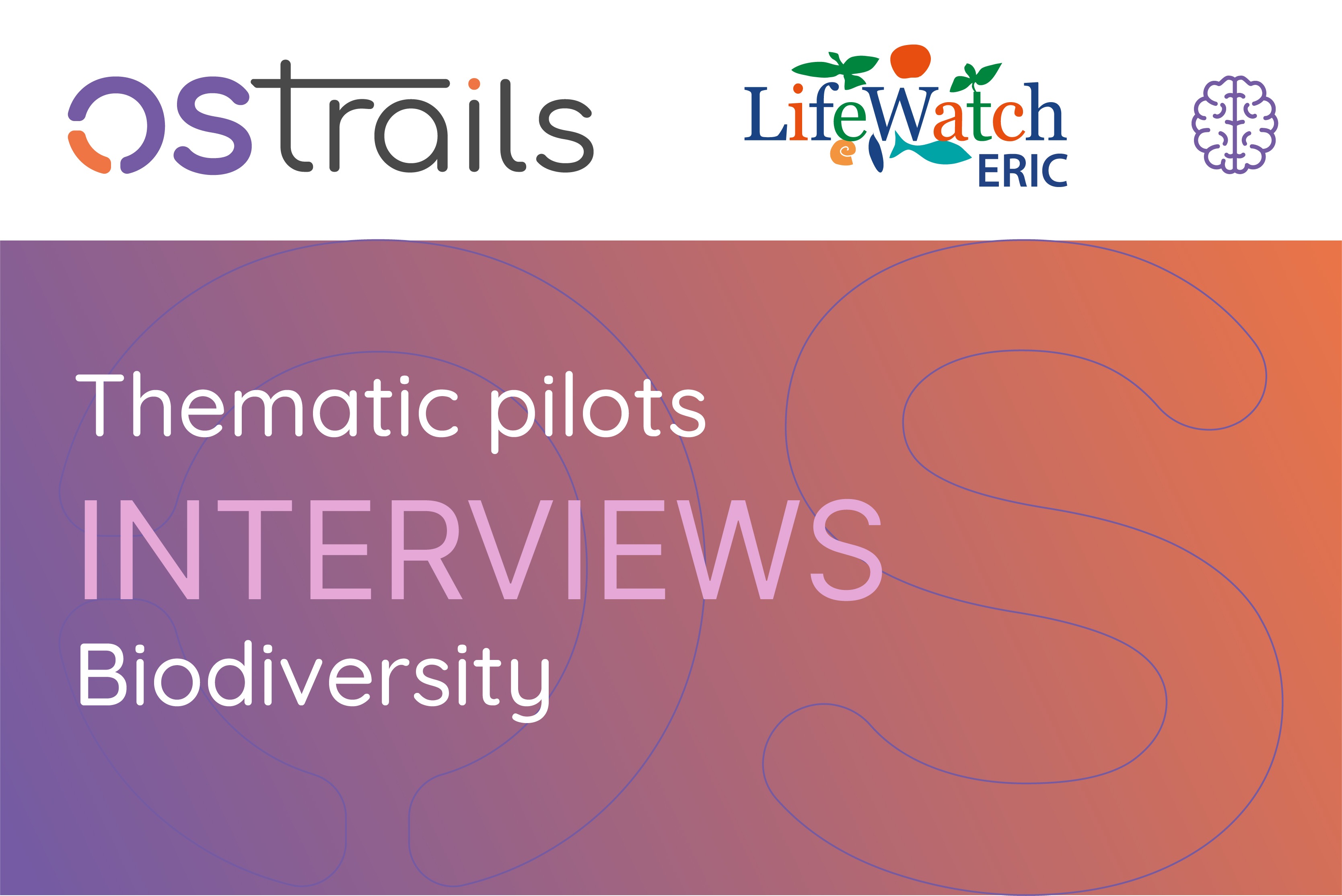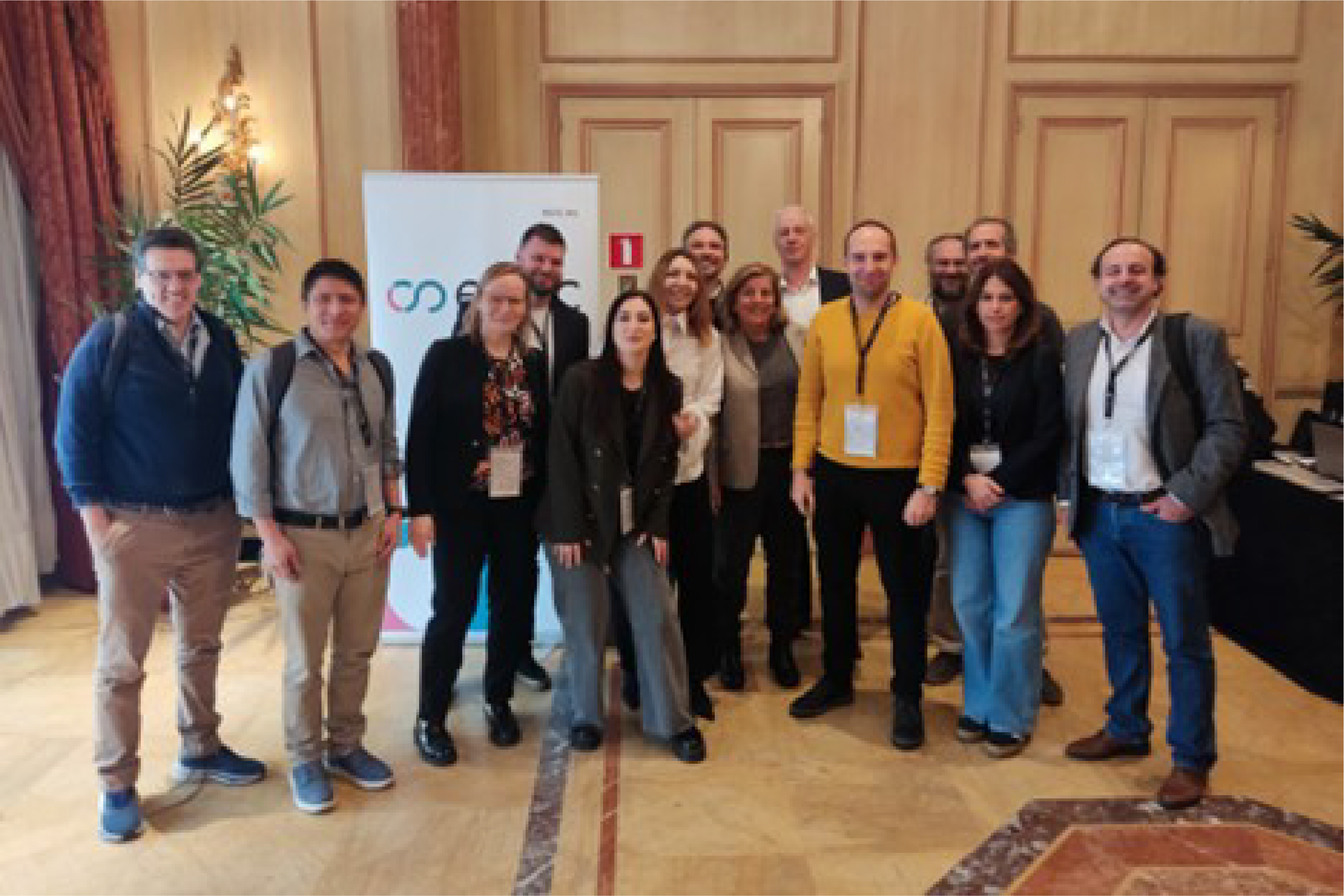OSTrails General Assembly 2025: Aligning Progress and Planning the Path Ahead

From 13 to 14 March 2025, the OSTrails consortium convened in Athens for its first General Assembly—a key milestone that marked OSTrails’ transition from early development to integrated implementation and broader adoption. With over 65 participants attending in person and many more joining online, the hybrid event brought the entire consortium together to consolidate technical progress, share lessons from early pilot deployments, and agree on shared priorities for the months ahead. Preceded by a day of hackathons and working sessions on pilots and training, the Assembly served as a milestone for both operational alignment and community-driven development.
Key Outcomes of the Assembly
- Completion of all key Year One outputs, including the first versions of the Reference Architecture, Plan–Track–Assess Framework, Interoperability Frameworks (DMP-IF, SKG-IF, FAIR-IF), Commons, FAIRness Reference Model, DMP Evaluation Rubric.
- key technical components revision based on pilot and hackathon input.
- Timelines for the DMP Evaluation Service and HE Pilot.
- Alignment on shared templates and benchmarks for pilot implementation.
- Launch of a capacity-building programme with Mentorship and Webinars.
- Commitment to EOSC alignment and community-driven development.
A Look Back: What We Discussed
Day 1 focused on the project’s core technical components, including updates on Interoperability Frameworks, the Reference Architecture, and the Plan–Track–Assess model. Discussions covered practical progress on maDMP API, SKG extensions, and FAIR test result structures. Day 2 shifted to coordination and adoption, highlighting the Horizon Europe pilot, the upcoming DMP Evaluation Service, and engagement with EOSC Nodes. Across both days, partners were highly engaged—sharing lessons from pilots, asking sharp questions, and clearly driving the project forward together.

Key Achievements from Year One
During the Assembly, presentations from the technical leads highlighted a major milestone for the project: the release of the first version of the OSTrails Toolkit. The Toolkit now provides a structured foundation for the project’s vision of integrated, interoperable research data workflows. This includes the Plan–Track–Assess Framework (D1.1), which maps how digital objects can be managed, evaluated, and improved across their lifecycle, and the Reference Architecture (D1.4, outlining how DMPs, SKGs, and FAIR tools connect in automated, vendor-neutral ways. At the core are the three Interoperability Frameworks—DMP-IF, SKG-IF, and FAIR-IF (D1.4)—each designed to promote alignment and consistency across platforms. Additional components include the OSTrails Commons (D2.5), a growing set of open and reusable resources; the FAIRness Reference Model (D1.2), which offers guidance for FAIR adoption across research stages; and the DMP Evaluation Rubric (D3.1), which defines how the quality of DMPs can be assessed in a structured and transparent way.

Implementing Interoperability
Equipped with the first version of the OSTrails Toolkit, the community came together in three hackathons held just before the Assembly—targeting FAIR assessment workflows, maDMPs, and SKGs—to build on this progress and test key components in practice. The energy during the hackathons, as well as in the plenary discussions, reflected a shared excitement, particularly around the potential of DMPs as actionable tools and the growing need for FAIR benchmarks to be adopted by infrastructures like OpenAIRE and research institutes.
- The DMP Hackathon gathered international developers—including several from outside Europe—to advance the maintenance of the RDA Common Standard and initiate a common maDMP API.
- The FAIR hackathon convened developers from various FAIR related platforms and tools, focused on aligning assessment services and harmonising benchmark formats and APIs.
- The SKG Hackathon, pushed forward SKG interoperability through OpenAPI enhancements and metadata modeling.
These sessions helped surface integration challenges, align technical directions, and lay the groundwork for upcoming tool releases and framework updates.
 |
 |
 |
Pilot Progress
Pilot use cases presented during the Assembly showed how OSTrails tools are being tested and embedded in real contexts. Pilots from Finland, Poland, the Netherlands, CESSDA, ESRF, and ENVRI demonstrated applications such as enriching DMPs with live metadata, conducting FAIR assessments in disciplinary workflows, and aligning institutional infrastructures with project frameworks. Feedback from these pilots is now feeding directly into tool refinement and API evolution.
Building Community Capacity
The importance of training and outreach was also central to the discussions. To support both foundational understanding and hands-on implementation of OSTrails technologies, the project has launched the Training Corner. This serves as a centralised, continuously evolving platform that hosts a growing collection of high-quality learning materials (learning resources, online Courses, mentorship programs, bootcamps), covering project’s core components such as DMPs, SKGs, and FAIR assessment tools and services.
What’s Next
Technical Milestones
To advance core components, the next round of OSTrails hackathons—scheduled for May/June 2025— will focus on refining the maDMP API, extending SKG-IF with new entities (e.g., Instruments, RAiD), and enhancing FAIR-IF with better benchmark and metadata support. Outputs from these hackathons, combined with early pilot feedback, will inform the revision of the Reference Architecture and all three Interoperability Frameworks by the end of Year 2, ensuring they are scalable, coherent, and responsive to real-world needs.
In parallel, OSTrails will release a prototype of the DMP Evaluation Service by Month 20. This semi-automated tool will assess DMPs across multiple dimensions—completeness, feasibility, quality, and policy compliance.
From Pilots to Policy
As pilots consolidate use cases, they will directly contribute to refining APIs, evaluation metrics, and implementation guidance. A shared DMP template, based on the Horizon Europe model, will be co-developed to support platforms, funders, and research teams across diverse national and disciplinary contexts. This will help bridge technical outputs with funder expectations and ensure greater transferability and policy alignment.
From the Community to the Community
To scale adoption and engagement, OSTrails will launch several capacity-building initiatives:
- An online course on (ma)DMPs will be piloted at the end of 2025, with full release in early 2026.
- The OSTrails Mentorship Programme will run from June 2025 to May 2026, offering hands-on support to research support staff, funders, and infrastructure managers.
- An OSTrails webinar series will begin in April 2025, showcasing project outputs and pilot experiences:
Throughout the year, OSTrails will be featured at major events including LIBER, OSFAIR, and its first Bootcamp (late 2025), aimed at training institutional adopters.
Conclusions
The 2025 General Assembly marked OSTrails’ shift from building infrastructure to enabling widespread adoption. Backed by strong technical foundations and growing adoption, OSTrails enters Year Two with momentum and a clear role in shaping research data practices across Europe.



